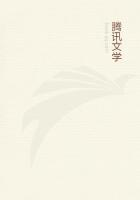IT might naturally be expected that the reserve so commonly maintained with regard to personal names would be dropped or at least relaxed among relations and friends. But the reverse of this is often the case. It is precisely the persons most intimately connected by blood and especially by marriage to whom the rule applies with the greatest stringency. Such people are often forbidden, not only to pronounce each other's names, but even to utter ordinary words which resemble or have a single syllable in common with these names. The persons who are thus mutually debarred from mentioning each other's names are especially husbands and wives, a man and his wife's parents, and a woman and her husband's father. For example, among the Caffres a woman may not publicly pronounce the birth-name of her husband or of any of his brothers, nor may she use the interdicted word in its ordinary sense. If her husband, for instance, be called u-Mpaka, from impaka, a small feline animal, she must speak of that beast by some other name. Further, a Caffre wife is forbidden to pronounce even mentally the names of her father-in-law and of all her husband's male relations in the ascending line; and whenever the emphatic syllable of any of their names occurs in another word, she must avoid it by substituting either an entirely new word, or, at least, another syllable in its place. Hence this custom has given rise to an almost distinct language among the women, which the Caffres call women's speech. The interpretation of this women's speech is naturally very difficult, for no definite rules can be given for the formation of these substituted words, nor is it possible to form a dictionary of them, their number being so greatsince there may be many women, even in the same tribe, who would be no more at liberty to use the substitutes employed by some others, than they are to use the original words themselves. A Caffre man, on his side, may not mention the name of his mother-in-law, nor may she pronounce his; but he is free to utter words in which the emphatic syllable of her name occurs. A Kirghiz woman dares not pronounce the names of the older relations of her husband, nor even use words which resemble them in sound. For example, if one of these relations is called Shepherd, she may not speak of sheep, but must call them the bleating ones; if his name is Lamb, she must refer to lambs as the young bleating ones. In Southern India wives believe that to tell their husband's name or to pronounce it even in a dream would bring him to an untimely end. Among the Sea Dyaks a man may not pronounce the name of his father-in-law or mother-in-law without incurring the wrath of the spirits. And since he reckons as his father-in-law and mother-in-law not only the father and mother of his own wife, but also the fathers and mothers of his brothers' wives and sisters' husbands, and likewise the fathers and mothers of all his cousins, the number of tabooed names may be very considerable and the opportunities of error correspondingly numerous. To make confusion worse confounded, the names of persons are often the names of common things, such as moon, bridge, barley, cobra, leopard; so that when any of a man's many fathers-in-law and mothers-in-law are called by such names, these common words may not pass his lips. Among the Alfoors of Minahassa, in Celebes, the custom is carried still further so as to forbid the use even of words which merely resemble the personal names in sound. It is especially the name of a father-in-law which is thus laid under an interdict. If he, for example, is called Kalala, his son-in-law may not speak of a horse by its common name kawalo; he must call it a riding-beast (sasakajan). So among the Alfoors of the island of Buru it is taboo to mention the names of parents and parents-in-law, or even to speak of common objects by words which resemble these names in sound. Thus, if your mother-in-law is called Dalu, which means betel, you may not ask for betel by its ordinary name, you must ask for red mouth; if you want betel-leaf, you may not say betel-leaf (dalu 'mun), you must say karon fenna. In the same island it is also taboo to mention the name of an elder brother in his presence. Transgressions of these rules are punished with fines. In Sunda it is thought that a particular crop would be spoilt if a man were to mention the names of his father and mother.
Among the Nufoors of Dutch New Guinea persons who are related to each other by marriage are forbidden to mention each other's names. Among the connexions whose names are thus tabooed are wife, mother-in-law, father-in-law, your wife's uncles and aunts and also her grand-uncles and grand-aunts, and the whole of your wife's or your husband's family in the same generation as yourself, except that men may mention the names of their brothers-in-law, though women may not. The taboo comes into operation as soon as the betrothal has taken place and before the marriage has been celebrated.
Families thus connected by the betrothal of two of their members are not only forbidden to pronounce each other's names; they may not even look at each other, and the rule gives rise to the most comical scenes when they happen to meet unexpectedly. And not merely the names themselves, but any words that sound like them are scrupulously avoided and other words used in their place.
If it should chance that a person has inadvertently uttered a forbidden name, he must at once throw himself on the floor and say, I have mentioned a wrong name. I throw it through the chinks of the floor in order that I may eat well.













